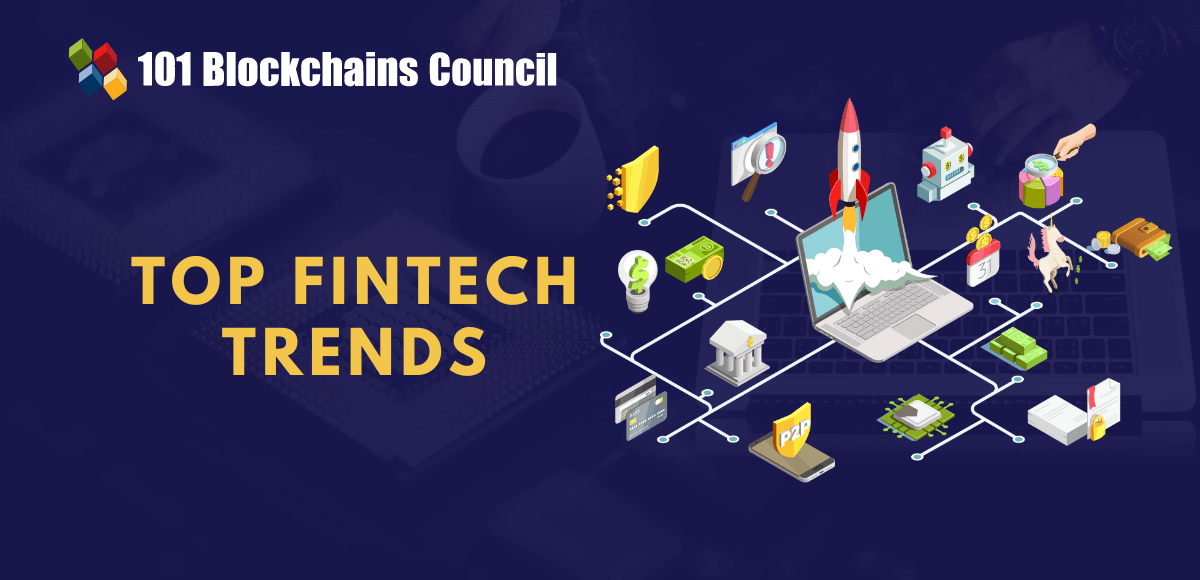The fintech landscape is evolving rapidly, revolutionizing the way financial services are delivered and consumed. As the industry adapts to new technologies, regulations, and consumer behaviors, several key trends are emerging that are shaping the future of financial services. In this article, we explore the most impactful fintech trends and how they are influencing the global financial ecosystem.
1. Artificial Intelligence and Machine Learning in Fintech
The integration of artificial intelligence (AI) and machine learning (ML) is one of the most transformative developments in fintech. These technologies are enabling financial institutions to process vast amounts of data, automate processes, and deliver personalized services to customers. AI-driven algorithms are used to assess credit risk, detect fraud, and provide real-time financial advice.
Financial institutions are increasingly using AI to enhance customer experience by offering chatbots, virtual assistants, and personalized investment strategies. Machine learning models are also being employed to predict market trends, optimize portfolios, and improve decision-making processes. As AI and ML technologies advance, their applications in fintech will continue to expand, offering new possibilities for innovation.
2. Blockchain and Cryptocurrencies: Decentralizing Finance
Blockchain technology is transforming the Fintech Trends sector by enabling decentralized, transparent, and secure transactions. It has the potential to disrupt traditional banking systems by eliminating intermediaries and reducing transaction costs. Cryptocurrencies, powered by blockchain, are gaining traction as alternative forms of payment and investment.
Decentralized finance (DeFi) is a growing movement that leverages blockchain technology to create open financial systems without the need for traditional banks. DeFi platforms offer services such as lending, borrowing, and trading without intermediaries, allowing users to have full control over their assets. As more people embrace cryptocurrencies and DeFi solutions, the demand for decentralized financial services is expected to rise.
3. The Rise of Digital-Only Banks
Digital-only banks, also known as neobanks, are challenging traditional banking models by offering fully online banking services with no physical branches. These banks are gaining popularity due to their convenience, low fees, and seamless digital experiences. They provide services such as checking accounts, savings accounts, and personal loans through mobile apps and websites.
Neobanks cater to tech-savvy consumers who prefer to manage their finances online. Their streamlined operations and lack of physical infrastructure allow them to offer competitive rates and innovative features. As consumer demand for digital banking continues to grow, traditional banks are under pressure to modernize their offerings to compete with these agile newcomers.
4. Embedded Finance: Integrating Financial Services into Non-Financial Platforms
Embedded finance refers to the integration of financial services into non-financial platforms and products. This trend is gaining momentum as companies in various industries embed payment processing, lending, and insurance services directly into their customer journeys. For example, e-commerce platforms now offer integrated payment solutions, allowing customers to complete transactions without leaving the site.
The rise of Buy Now, Pay Later (BNPL) services is a prime example of embedded finance. These services allow consumers to purchase goods and pay for them in installments, providing flexibility and enhancing the overall shopping experience. As more businesses adopt embedded finance, the boundaries between financial and non-financial sectors will continue to blur, creating new opportunities for growth.
5. Open Banking: Promoting Data Sharing and Innovation
Open banking is a regulatory-driven trend that encourages financial institutions to share customer data with third-party providers, with the customer’s consent. This data-sharing model promotes innovation and competition by allowing fintech companies to develop new products and services tailored to individual needs.
By leveraging Application Programming Interfaces (APIs), open banking enables seamless integration between financial institutions and fintech providers. This creates a more personalized and efficient banking experience for customers. Open banking also fosters financial inclusion by providing consumers with greater access to a wider range of financial products and services.
6. RegTech: Automating Regulatory Compliance
RegTech (Regulatory Technology) is a rapidly growing sector within fintech that focuses on using technology to help financial institutions comply with regulatory requirements. As regulations become more complex and stringent, RegTech solutions offer a way to streamline compliance processes, reduce operational costs, and minimize risks.
These technologies use AI, big data, and blockchain to monitor transactions, assess compliance risks, and ensure adherence to regulatory standards in real-time. Financial institutions are increasingly adopting RegTech tools to automate reporting, detect money laundering activities, and manage risk more effectively. As regulations evolve, the demand for innovative RegTech solutions is expected to increase.
7. Cybersecurity in Fintech: Safeguarding Digital Assets
With the rise of digital financial services comes an increased need for cybersecurity. As more consumers and businesses conduct financial transactions online, protecting sensitive data and preventing cyberattacks has become a top priority for fintech companies. Cybersecurity threats such as data breaches, ransomware attacks, and identity theft pose significant risks to the industry.
To mitigate these risks, fintech companies are investing in advanced cybersecurity measures such as encryption, multi-factor authentication, and biometric verification. Financial institutions are also partnering with cybersecurity firms to develop solutions that safeguard digital assets and protect against emerging threats. Ensuring robust security protocols is crucial for maintaining trust in the digital financial ecosystem.
8. The Evolution of Payments: Contactless and Mobile Payments
The payment industry is undergoing a significant transformation with the rise of contactless payments and mobile payment platforms. financial app development companies Consumers are increasingly using mobile devices and contactless cards to make purchases, driven by convenience and security. The COVID-19 pandemic accelerated the adoption of these payment methods, as businesses and consumers sought contactless solutions to reduce physical interaction.
Mobile wallets, such as Apple Pay, Google Pay, and Samsung Pay, are becoming mainstream, allowing users to store payment information and make transactions with a tap of their smartphone. Contactless payment technologies, including near-field communication (NFC) and QR codes, are also becoming more widespread. As digital payment methods continue to evolve, they are expected to play a dominant role in the future of financial transactions.
9. Fintech and Financial Inclusion
Fintech is playing a critical role in promoting financial inclusion, particularly in underserved markets. Digital financial services are providing access to banking, credit, and investment opportunities for individuals who were previously excluded from the formal financial system. Mobile banking, microloans, and digital wallets are empowering people in developing economies to manage their finances and build wealth.
Innovative fintech solutions are addressing the needs of low-income individuals, small businesses, and rural populations by offering affordable and accessible financial products. As fintech continues to expand into emerging markets, it has the potential to bridge the gap between the unbanked and the global financial system.
10. Sustainability and Green Fintech
The growing focus on sustainability is influencing the fintech industry as companies seek to align their business practices with environmental, social, and governance (ESG) principles. Green fintech refers to the use of financial technology to support sustainable finance initiatives, such as investing in renewable energy, reducing carbon footprints, and promoting responsible consumption.
Fintech companies are developing innovative solutions to help individuals and businesses make more environmentally conscious financial decisions. For example, some platforms provide insights into the carbon impact of purchases, while others offer investment opportunities in sustainable projects. As the demand for ESG-focused financial products grows, green fintech is expected to play a pivotal role in shaping the future of finance.




